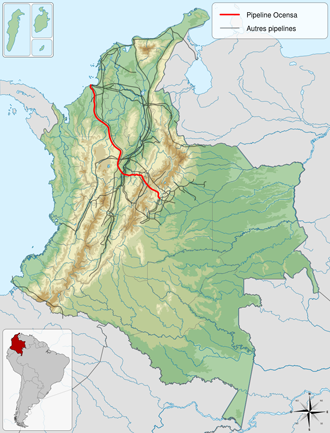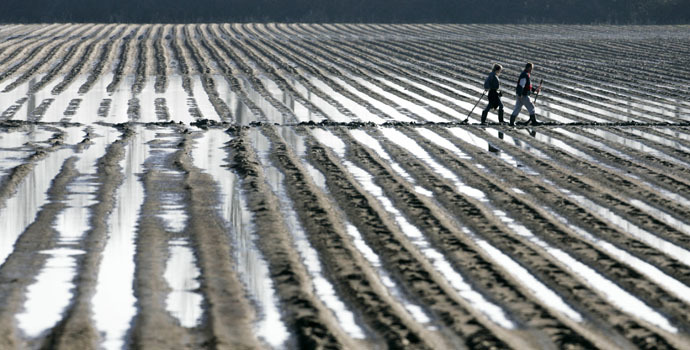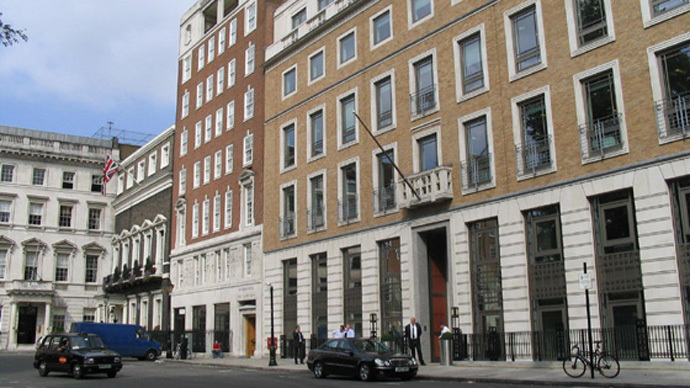Verdict due in Colombian farmers’ £18mn High Court lawsuit against BP

A British High Court will decide whether UK oil firm BP should pay £18 million to Colombian farmers, following allegations that a faulty pipeline caused environmental devastation in central Colombia and resulted in economic losses for regional farmers.
The Ocensa pipeline, which carries 650,000 barrels of crude oil daily from central Colombia to the state’s Caribbean coastline, was laid in the mid-1990s.
Local subsistence farmers - known as the “campesinos” - say the pipeline’s design was faulty, and has resulted in blocked water sources and streams, and the spread of marshland throughout Colombia.

They claim to have experienced serious financial losses as a result of the environmental damage, and are suing British Petroleum for £18 million.
The case marks the first time energy giant BP has faced a British court over its practices overseas. It is also the first time that compensation for environmental damage, allegedly caused by a UK energy firm, has been sought in a British court.
London-based law firm Leigh Day is representing the farmers. BP rejects the allegations.
The trial, which follows seven years of tense legal wrangling, began in October 2014. It has focused largely on the environmental and economic damage that the alleged faulty pipeline caused for four Colombian farmers.
As the proceedings reach their closing stages, a final judgment will surface in February.
“The disparity between one of largest and most powerful global corporations armed with knowledge, power and resources and the campesinos whose lives and livelihoods are interwoven with the land they live on...infuses this case,” Alexander Layton, the farmers' attorney, told the court.
“It is the key which will explain what went wrong when the defendant (BP) came along in 1996 and cut a swathe through the delicate land where the claimants live in order to drive their pipeline from the oilfield in central Colombia to the sea.”
Four key farmers have travelled to London to offer evidence.
Velez Montoya, from Segovia, told Judge Stuart-Smith in the London Technology and Construction Court that farmers’ water supply has been hampered by sedimentation since the pipeline was laid, adding that he has lost livestock as a result.
The farmer said he is now unable to keep chickens or pigs because he lacks the water to sustain them.
“The reason why we have travelled so far is because we have hope and faith that the high court in London will deliver justice to us,” he told Judge Stuart-Smith.

Rodrigo de Jesus Mesa said his water sources “filled up with mud” after the pipeline was laid.
“It made farming very difficult – but I can’t even sell the farm because of the pipeline.”
BP strongly denies any responsibility for the environmental damage that farmers in Colombia are forced to endure.
The energy giant maintains the pipeline throughout central Colombia sustained no physical damage, and that the project was carried out in line with the highest construction standards.
The farmers received a modest amount of compensation from BP when the pipeline was constructed. But they argue it does not cover the financial losses they have suffered since.
BP claims, however, the farms were characterized by declining levels of productivity prior to the pipeline’s construction.

The case concerning BP follows a landmark victory for 15,600 Nigerian farmers and fishermen whose livelihoods were devastated by two separate Shell oil spills in 2008 and 2009.
The oil firm opted to avoid a High Court case and paid a total of £55 million to the Bodo community on January 7.
In light of its role in the 2010 Gulf oil spill - the largest accidental marine oil spill in history - BP has paid a record $4.525 billion in fines and other payments.
BP and the US Department of Justice settled criminal charges in 2012, with the oil giant pleading guilty to two misdemeanors, lying to Congress, and 11 counts of manslaughter.
In September 2014, a US judge ruled BP was largely responsible for the oil spill.
The judge’s ruling, which resolved that BP was guilty of negligence and reckless conduct, could burden the oil company with additional penalties of $18 billion.












